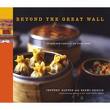…And where I first learned about them. My local independent bookstore has a sale every year, and I use it as a time to buy books by new authors, as well as some old favourites. I thought it might be fun to list them, and to try to figure out what made me buy them.
 David Blixt, The Master of Verona St. Martin’s Press, 2007.
David Blixt, The Master of Verona St. Martin’s Press, 2007.
I definitely learned about this one online first, most likely here. Shakespeare and Dante? Looks yummy.
 Charles de Lint, Widdershins (Tor, 2006).
Charles de Lint, Widdershins (Tor, 2006).
The first de Lint book I read, many moons ago, was his book in the Fairy tale series, Jack of Kinrowan. I loved the Ottawa setting, and I’ve been a fan ever since.
 Catherine Delors, Mistress of the Revolution Dutton, 2008.
Catherine Delors, Mistress of the Revolution Dutton, 2008.
I first learned of this book when I saw the sale posted on Publisher’s Marketplace last January. “That looks like something I’d read,” I thought, “Maybe her agent would be the right one for me.”
 William Gibson, Spook Country Berkley, 2007.
William Gibson, Spook Country Berkley, 2007.
I picked his Pattern Recognition up off a library shelf and loved it, and though I did not enjoy Neuromancer or Mona Lisa Overdrive quite as much, I thought I’d try this.
 Conn Iggulden, Genghis: Birth of an Empire Dell, 2007.
Conn Iggulden, Genghis: Birth of an Empire Dell, 2007.
This was a spontaneous buy. I love historical fiction about Asia and I read Cecilia Holland’s Mongol novel, Until the Sun Falls for the second time recently with great delight. And he was one of the author’s of The Dangerous Book for Boys. How can i go wrong?
 Barbara Kingsolver, Animal, Vegetable, Miracle Harper, 2007.
Barbara Kingsolver, Animal, Vegetable, Miracle Harper, 2007.
My only non-fiction book in this group. When I read for pleasure, it is almost always fiction. My sister introduced me to Kingsolver through Prodigal Summer and I have become a fan.
 Lisa See, Peony in Love Random House, 2008.
Lisa See, Peony in Love Random House, 2008.
See about abut Asian historical fiction. I haven’t read anything by her before. I suspect I first saw her books on a front table at a bookstore.
 Diane Setterfield, The Thirteenth Tale Washington Square Press, 2006.
Diane Setterfield, The Thirteenth Tale Washington Square Press, 2006.
I am sure I first heard about this one on the internet, and I think it was through some online contest the publisher was running to promote it. I didn’t participate in the contest, but I did remember the book, and I’ve been picking it up and putting it down every time I am in a bookstore for months. This time I didn’t put it down.
 Rebecca Stott, Ghostwalk Spiegel & Grau, 2008.
Rebecca Stott, Ghostwalk Spiegel & Grau, 2008.
If you’d asked me before I did this exercise how I found new books to read, I would have told you I browse the front tables and shelves of bookstores and choose books that way. This is the only book from this marathon purchasing session that I got that way. It was on the front table in the store, I picked it up, read the cover copy, and put it on my pile.
So, bought any good books lately? Let me know! I’m sure I’ll be back to the bookstore before long…










